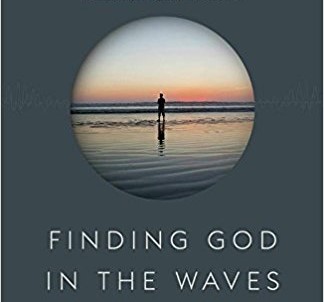What Mike McHargue’s 2016 Autobiography Can Tell Us About Christian Faith Formation
Here is a brief summation of a dialogue that took place a few weeks ago in the Sunday morning K-2 small group that I facilitate:
Student A, a 2nd-grader: I know God doesn’t exist. I can’t see God.
Student B, a 1st-grader: Then why are you at church?
Me (at various points in conversation, italicizing the words I emphasized): There are lots of things we can’t see, but that doesn’t necessarily mean they aren’t real—gravity, wind, and love, for example. We don’t see the things themselves, we see evidence of them. People who believe in God think they have seen evidence of God or experienced God. I don’t know whether God exists; I trust that God exists. We choose to believe whether or not God exists—either way, it’s called faith. Church is not where we come because of what we think we know—it is how we live because we choose to trust God and follow Jesus.
Again, this is a “neat and tidy” summation of what was actually a lengthy and rich back-and-forth dialogue among all members of the group while we engaged in making a craft.
One of the main reasons I launched the Discovery & Faith ministry is because I encounter these kinds of questions and discussions on a regular basis among the youngest children in my church. To me, their questions and dialogues reflect the terrain of learning to follow Jesus in a culture that is significantly shaped by science and reason. And I find that landscape well-described in Finding God in the Waves: How I Lost My Faith and Found It Again Through Science.
In Finding God in the Waves, Mike “Ask Science Mike” McHargue tells of his journey from Evangelical Christian, to atheist, to reformed follower of Jesus. Science was part of losing his faith, but, as the subtitle of the book indicates, it was science—and the wonder it inspired—that helped lead him back to faith.
What I found most valuable about this book is its candid portrayal of real intellectual struggle in the process of faith formation, and McHargue identifying the practices that have been most helpful in that process for him. I encounter each of McHargue’s spiritual “personalities,” not just in different children, but in their questions and conversations. One week Student B sounds like the evangelical Christians I grew up with when he asks, “Then why are you at church?” The next, he is the skeptic asking, “Well, if God created everything, then who created God?” And then the next he’s sharing with me about how he has heard God speak to him. McHargue’s journey reveals much about these different perspectives.
McHargue identifies prayer and going to church as the two most helpful practices in building his faith.
I suggest that the take-aways from this book for the Christian pastor, parent, or educator are:
- Be a source of loving support and affirmation. Saying “the Bible says…” is not helpful. McHargue says, “My path back to God was paved with grace by those who received my doubt in love.” My role as a Christian educator is not to give Sunday-morning “right answers”, but to affirm all of my students’ experiences—their faith, doubt, knowing, and not knowing– as part of the journey of following Jesus. To share how, I too, have had those experiences and why I trust that God is at work in my life.
- Make prayer central. McHargue shares how prayer was key to his faith and why–explaining the science behind how prayer builds a neural network for the experience of God in our brains. He says, “Prayer has always been important to my faith and now I knew why: Prayer is the most essential practice for cultivating a God network in human brains… In other words, if you want to know God, prayer doesn’t come after you’ve answered every one of your nagging questions. It comes before.”
- Have a balanced approach to providing opportunities to learn about God, experience God, and build a framework for God. In his journey, McHargue got to the point that he “…spent so much time analyzing God that I didn’t have time to experience Him.” He says that the “obsession with analyzing God as a fact” is the “most corrosive form of religious doubt.” At the same time, he says that his “logical scaffold” failed his faith when he encountered claims of science and reason. Much of children’s ministry—at church and in the home—is about Bible learning and participating in the practices of worship, prayer, and service to others. And rightly so, those are key to faith formation. But, we also need to help our children build a “logical scaffold” that won’t fail their faith. (This is what Discovery & Faith’s “side-by-side” approach is all about.)
Discovery & Faith can earn a small commission in support of its non-profit mission through the purchase of this book from Amazon via the link below:


